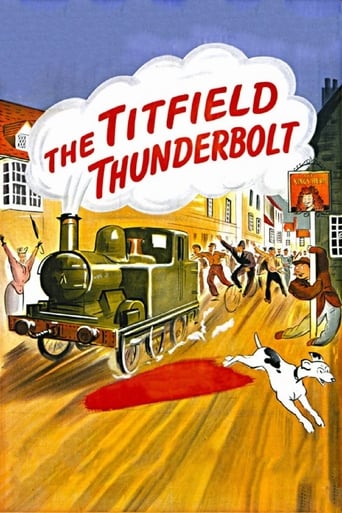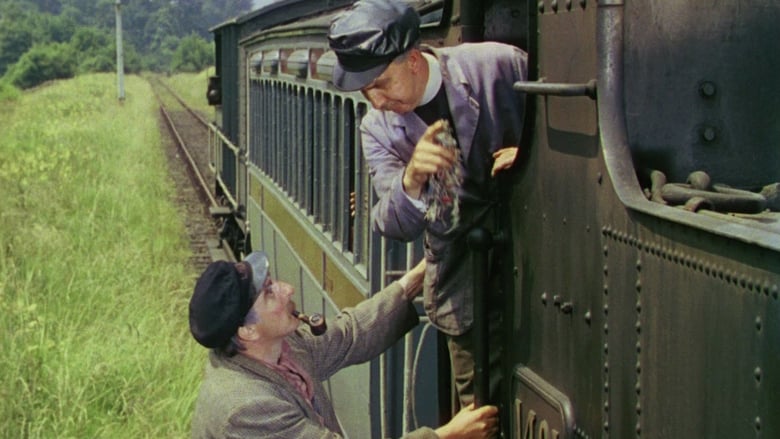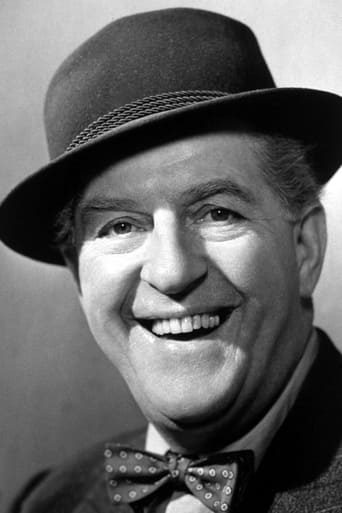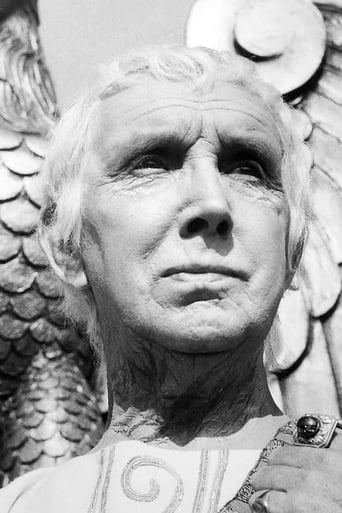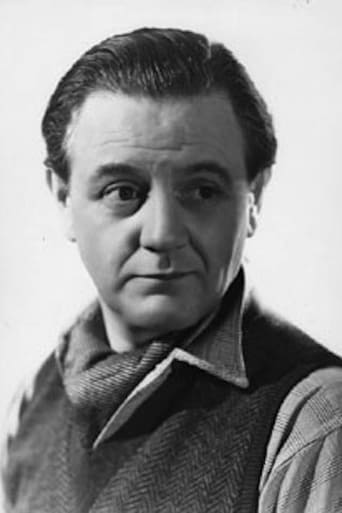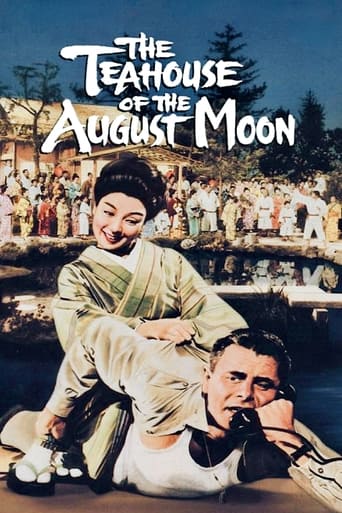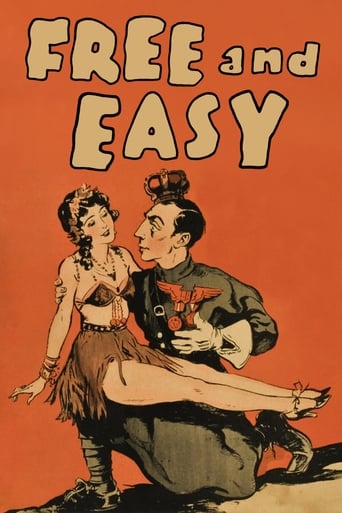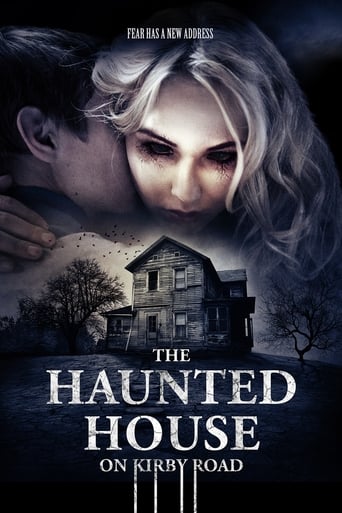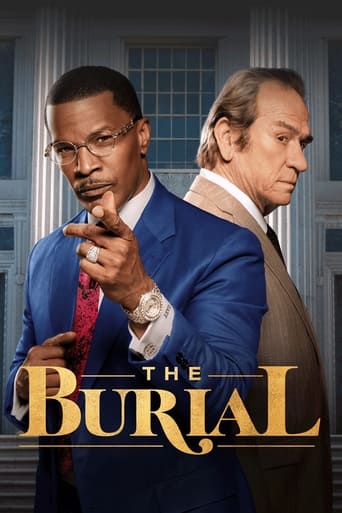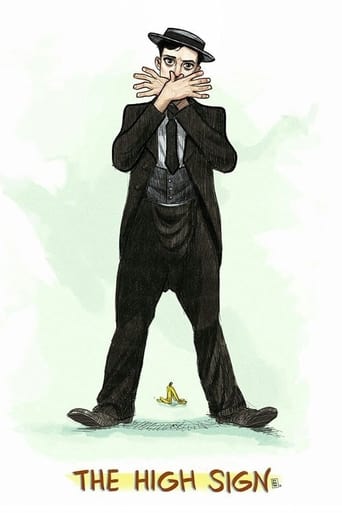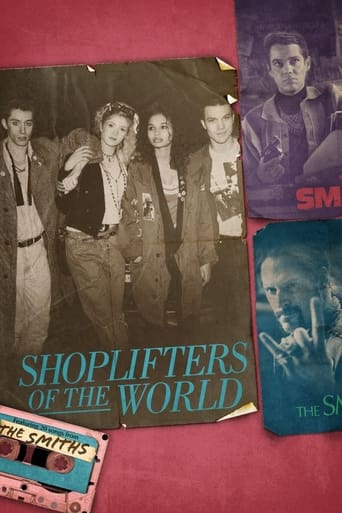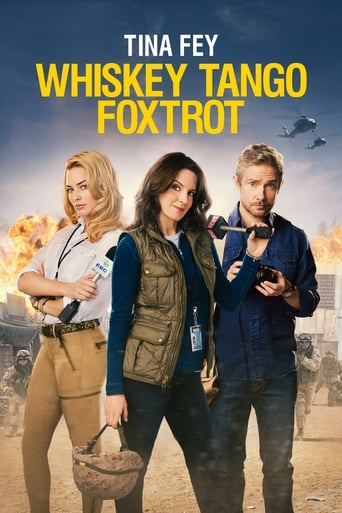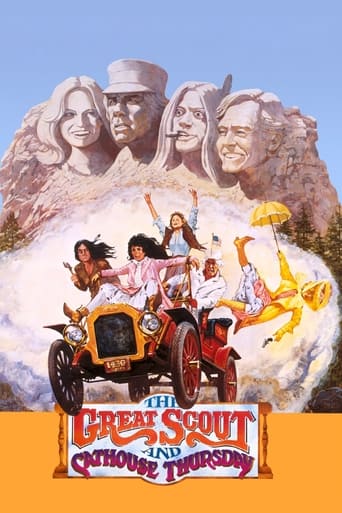The Titfield Thunderbolt (1953)
When British Railways announce the closure of the Titfield to Mallingford branch line a group of local residents make a bid to run it themselves, backed by a monied member of the community who is attracted by the complete lack of licensing hours on trains. Unfortunately the local bus company starts to use methods that can hardly be seen as fair competition.
Watch Trailer
Free Trial Channels
Cast


Similar titles
Reviews
It's an amazing and heartbreaking story.
if their story seems completely bonkers, almost like a feverish work of fiction, you ain't heard nothing yet.
A film with more than the usual spoiler issues. Talking about it in any detail feels akin to handing you a gift-wrapped present and saying, "I hope you like it -- It's a thriller about a diabolical secret experiment."
Story: It's very simple but honestly that is fine.
THE TITFIELD THUNDERBOLT played a few 'art houses' in the U.S.A. when it came out, but I, at 14, missed it in its short New York City run, and have finally caught up with it. There is no need to rave about it here, because most of the other reviews printed here do so more than adequately, and I totally concur with the most positive of those reviews. There are so many wonderful character actors/comedians in this film that unless you rave about all of them, you are in danger of grievously insulting that one or two you leave out. However, only one other reviewer has mentioned a 'little' performance in this film - it runs no more than a minute - which had me reversing the film about four or five times to see it over and over again, and that is the performance of an unnamed policeman by actor Wensley Pithey. Unadulterated Anglophile movie-lover that I am, I cannot recall his name at all, yet he seems to have had some notable success as, if no one else, Winston Churchill in several outings as that wonderful man. Here, he almost steals the film (at least, for me) as a policeman who has just arrested Stanley Holloway and Hugh Griffith for stealing a railroad engine and running it through all of Titfield to a final crash, and when asked what he is charging them with, breathlessly rattles off a litany of charges that are almost awe-inspiring to the viewer. If he did not have the 1953 version of a teleprompter in front of him, it is amazing that the actor could even have memorized such a plethora of legally questionable activities. It's kind of like a shorter comic version of Edward G. Robinson's speech in DOUBLE INDEMNITY on all the ways to commit insurance fraud, or for something more classical in nature, Oscar Wilde's Herod spewing forth his huge list of things he will give Salome in preference to providing her with the only thing she really wants - John the Baptist's head. This may not be one of the defining moments of British screen acting, but having been watching films for a good 70 years without recognizing him, I will now remember Wensley Pithey's name forever (well, for however long my particular forever may last). Bravo for British Acting and, in the absence of a teleprompter, the memorization techniques endemic to the acting profession.
The Ealing comedies have never looked as wonderful as in 'The Titfield Thunderbolt (1953),' the first from the studio to be filmed in Technicolor. Cinematographer Douglas Slocombe captures the sheer magnificence of the British countryside, every frame alive with the vibrant colours of the hills, the trees and the skies. The film was directed by Charles Crichton, who had earlier achieved success with 'The Lavender Hill Mob (1951),' and was penned by T.E.B. Clarke, who also wrote the outrageously whimsical 'Passport to Pimlico (1949),' encapsulating the wit and optimism of the British sense of humour in a way that typifies why such classic comedy gems are still treasured more than fifty years later. The story was inspired by real events, when local volunteers restored and operated the narrow gauge Talyllyn Railway in Wales.The residents of the small village of Titfield rely daily on trains to commute to work each day; so much so that the steam locomotive has become an icon of the town. However, when British Rail announces the intended closure of the service, the villagers are understandably devastated, and one resident, railway enthusiast Vicar Sam Weech (George Relph), decides to purchase the line and run it locally. Employing the funding of the wealthy and amiably-drunken Walter Valentine (Stanley Holloway), who is easily persuaded by the promise of an early-morning bar on the train, Sam and the other enthusiastic villagers convince the Ministry of Transport to offer them a one month trial, at the end of which their ability to run a train service will be determined. The only two men in town who don't approve of this daring venture are Pearce and Crump (Ewan Roberts and Jack MacGowran), the owners of a bus service, who plan to gain from the closure of the train service, and will try anything to prevent it from running again.'The Titfield Thunderbolt' shares many of its themes with a lot of the other Ealing comedies, most namely the notion of a small community taking on the "Big Guys" {also found in 'Passport to Pimlico' and 'Whisky Galore!'} and the potentially destructive forces of industrial progress {see also 'The Man in the White Suit (1951)'}. The acting is fun and light-hearted, and each of the characters possesses their own eccentricities, which makes them all equally enjoyable to watch. Considering its nature as a comedy, I was surprised to find that the film has some genuine moments of suspense, scenes that would not have seemed out-of-place in a Hitchcock film. I found myself gripping the seat in the sequence where the train passengers must disembark to collect water for the heating engine (after the water-tank is cunningly sabotaged), and also where the weak coupling between the engine and the carriage threatens to snap. The frequent use of rear-projection, which is relatively effective throughout the film, also reminded me of the Master of Suspense. It's an interesting comparison, I think.
The working class stereotypes, written in by middle class script writers, are lazy, dishonest and untrustworthy( ala Hue Griffiths) or simply stupid (Syd James). The vicar and other village bigwigs have much more admirable qualities as have the other middle-class characters.It all takes place in a kind of idealized world that never really existed, yet still manages to make many present day people feel nostalgic for a past that never was.This kind of class racism is alive an well on BBC Radio 4, if you care to listen to their so called (middleclass) dramas and has been a common feature of many British films in the past.
This delightful comedy would be a joy in black-and-white. In Technicolor it's a real treat. The vividly English landscapes are used imaginatively to augment the appeal of the trains themselves. Color is drawn upon inventively to set the moods for various scenes and to cast a wonderful spell of romance, of firmly delineated villains and purest-motived heroes in a classic tale of St George versus the dragon.T.E.B. Clarke's wittily observed, richly characterized script offers a wonderfully unlikely St George in the local vicar. His squire is the young squire himself, his champion a friendly bishop. The dragons are the local bus proprietors. Very fitting. I love trains, hate buses. Any movie that toes this line is going to get 100% of my vote anyway.But, additionally, the acting here is so winning, so endearing, so priceless. Not a single player is out of step. All have their opportunities even Naunton Wayne (in a more or less straight role) and Sid James (as a heavy) and all make the most of them. It's good to see George Relph (a noted actor on stage, Relph made only 14 movies between 1916 and 1959) in the leading role, though Stanley Holloway's fans may be a bit disappointed to find his contribution is comparatively small and lines up as more of a character part than that of a clown. Nonetheless, he does make the most of some delightfully amusing lines and bits of business and does share some glorious moments of inspired slapstick with Hugh Griffith (even if topped by Wensley Pithey's breathless recital of their collective misdemeanors).Producer Michael Truman and director Charles Crichton have obviously made a considerable effort to cast Clarke's wonderful parade of village types with just the right players. Gabrielle Brune, hardly a household name (she made only 21 films between 1930 and 1972, mostly in very small roles) seems ideal as the local hostelry's sympathetic barmaid. Similarly, television actor John Rudling (who made only five films of which this is the third), delivers some of the script's most telling lines with exactly the right tone of brusque officiousness. Of course, people like Reginald Beckwith as the stumped union man and Michael Trubshawe as the "I was about to add" public servant play much their usual characters. But they do it so well and with such precision, who's complaining? Crichton's direction rates as beautifully paced and deftly assured as ever, whilst Slocombe's wondrous photography comes over so pleasingly you really need to see the movie three or four times to appreciate its richness. Auric's score is a crowd-pleaser too, whilst Seth Holt's editing seems as polished as spun gold.Produced on an admirably lavish budget, The Titfield Thunderbolt can be summed up as one of the most brilliant, enduring gems of British comedy. A must for train buffs of course. But equally a superb entertainment for all of us who like to see individuals win against bureaucracy, underdogs defeat "progress".

